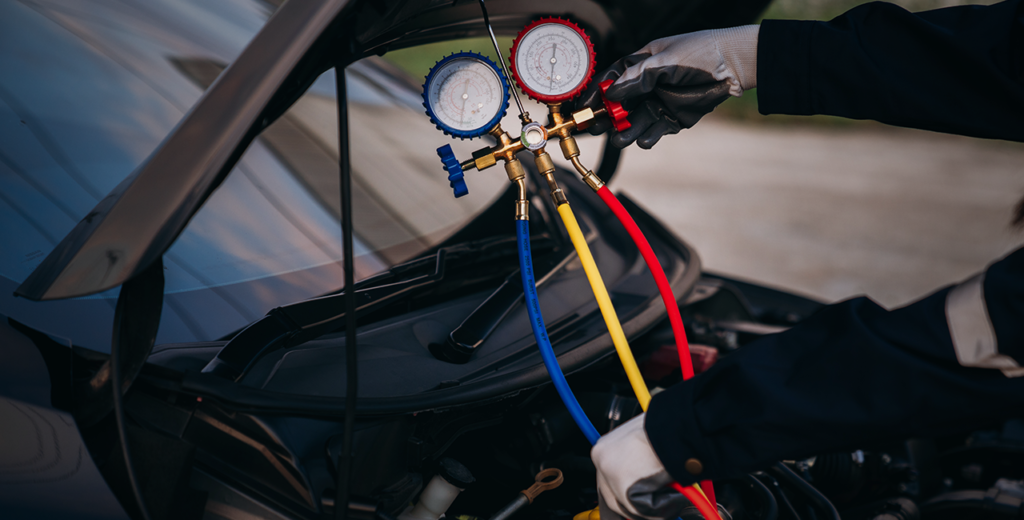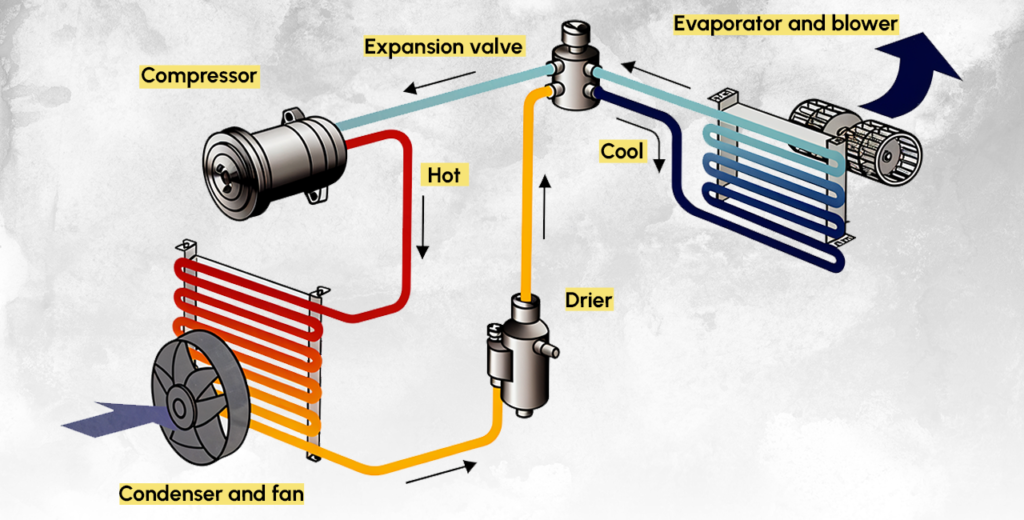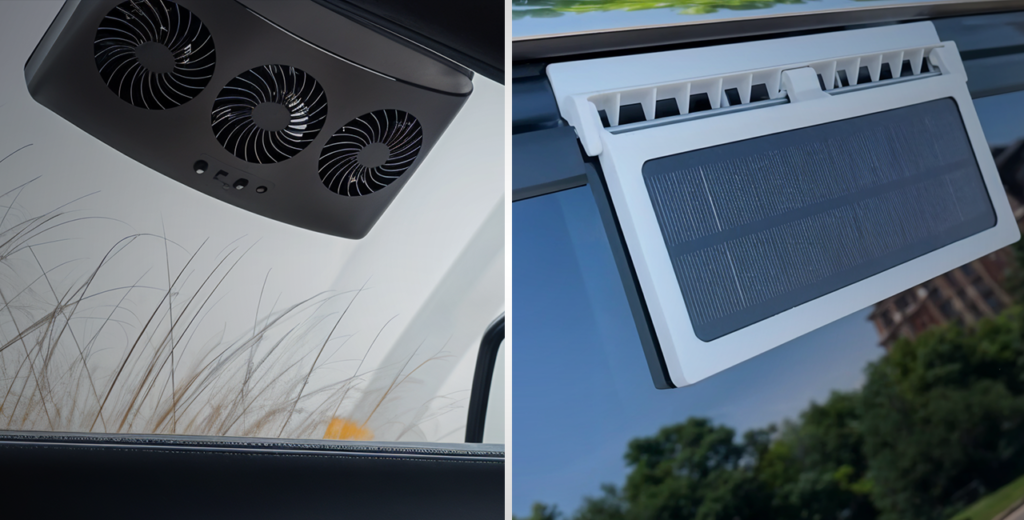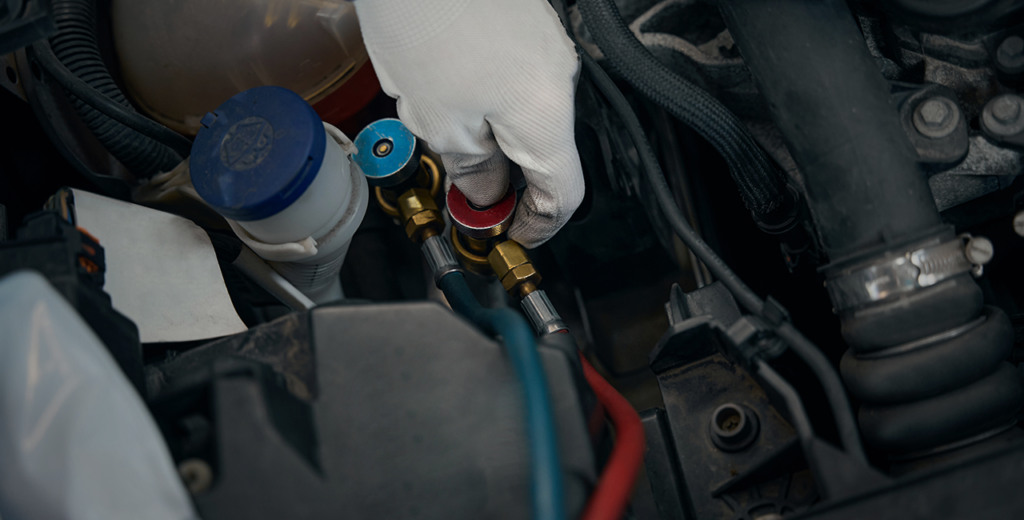When your car’s air conditioning (AC) system starts acting up, it’s tempting to keep using it, especially during hot weather. However, running car AC without the compressor functioning properly can lead to more harm than good.
While the system might still blow air, it’s crucial to understand the impact a malfunctioning compressor can have on your vehicle and why it’s important to seek auto repair Houston at the first sign of trouble.
Let’s explore the potential damage caused by a faulty compressor, how it affects your car’s performance, and why it’s important to seek auto AC repair services at the first sign of trouble.
If you’re searching for ‘auto repair near me,’ we’re here to help — book your service today.
What Happens When You Run Your Car AC with a Bad Compressor?
The compressor is the heart of your car’s air conditioning system. It pressurizes and circulates refrigerant throughout the system, which is essential for cooling the air.
When the compressor is not functioning properly (i.e., when it’s bad but not completely broken), it can still operate to some extent. However, this is often at the cost of increased strain on other components, potentially leading to more significant damage if not addressed.
Here’s what can happen when you run the AC with a bad compressor:
- Increased Wear on Other Components: A bad compressor can put additional strain on other components of the AC system, including the serpentine belt, pulleys, and even the engine. If the compressor clutch is faulty, it may cause the system to freeze up or work intermittently, putting stress on other parts.
- Decreased Performance: If the compressor is malfunctioning, the AC will likely blow less cold air, or it may cycle on and off unpredictably. This irregular behavior can lead to inconsistent cooling, making it uncomfortable for drivers and passengers.
- Overheating Risks: In severe cases, running the AC with a bad compressor can lead to overheating. This is because the compressor is responsible for maintaining the pressure of the refrigerant, and a malfunctioning compressor may cause refrigerant to circulate improperly. In turn, this can lead to engine overheating as the compressor continues to strain other components.
Does the Car AC Use Gas?

Yes, car AC systems do use gas—but not in the way you might think. The “gas” in a car’s AC system is actually refrigerant (often called Freon). This refrigerant is pressurized by the compressor and circulated through the system to absorb heat from inside the cabin and release it outside.
When the compressor is working properly, it helps in the efficient circulation of refrigerant, which is essential for cooling the air. However, if the compressor is bad or failing, it can cause issues such as refrigerant leakage, leading to poor AC performance or even total failure of the system. This is why it’s crucial to repair or replace a bad compressor before it leads to bigger problems.
The Impact of a Faulty AC Compressor on Your Car’s Engine
If you’re running car AC without the compressor functioning correctly, it doesn’t just affect your comfort; it can also damage other car AC components and even the engine. Here’s how:
- Increased Engine Load: A faulty compressor can cause the engine to work harder than it should. The engine needs to power the compressor to run the AC, and if the compressor is not working properly, the engine might have to compensate, causing extra fuel consumption and wear.
- Damage to the Serpentine Belt: The serpentine belt drives the compressor, and if the compressor is faulty or its clutch is malfunctioning, the belt can become worn or damaged. This may require costly repairs and replacement.
- Cooling System Overload: When the AC system is under strain, the cooling system can become overloaded, especially in warmer weather. A malfunctioning compressor can also result in improper refrigerant circulation, potentially overheating the engine.
Why Ignoring a Bad Compressor Can Cost You More
When it comes to car repairs, preventive maintenance is often the most cost-effective approach. Ignoring a bad AC compressor might seem like a minor issue, but the longer you let it go unchecked, the more extensive—and expensive—the damage can become.
A faulty compressor doesn’t just affect your cooling comfort; it can cause a domino effect that damages other car components. If left unattended, the strain caused by a malfunctioning compressor can damage the serpentine belt, overheat the engine, and even cause refrigerant leaks. The longer you delay repairs, the more likely it is that you’ll have to pay for a range of other repairs, including the replacement of key components like the compressor itself, the refrigerant lines, and even the engine.
Additionally, ignoring the issue can also reduce your fuel efficiency. As the engine has to work harder to compensate for the bad compressor, you’ll find that your car is using more fuel than necessary. This additional fuel consumption can add up quickly, leading to higher operational costs over time.
By addressing the problem early on, you not only extend the lifespan of your AC system but also avoid unnecessary repairs and expenses. Preventive maintenance plays a crucial role in keeping your car running smoothly, and that’s where Eric’s Car Care can help.
Our expert team offers thorough inspections and quality auto AC repair services to ensure your AC system is running efficiently and prevent costly breakdowns.
Understanding Car AC and Compressor

To understand the full impact of a bad compressor, it helps to take a look at the car AC diagram. The diagram provides a detailed breakdown of the key components and how they work together to cool your car. Here’s a quick rundown:
- Compressor: The heart of the system, compressing and circulating the refrigerant.
- Condenser: Cools the refrigerant before it moves to the evaporator.
- Evaporator: Absorbs heat from the cabin air and cools it down.
- Expansion Valve: Regulates the flow of refrigerant into the evaporator.
If the compressor is bad, it affects the refrigerant’s flow throughout the system. This not only impacts cooling efficiency but also places strain on the condenser and evaporator. Over time, this could lead to additional failures, making repairs even more expensive.
Myths and Facts About Running Your Car’s AC with a Bad Compressor
When it comes to running your car’s AC with a bad compressor, several myths and misunderstandings circulate. Here, we address some of the most common myths and provide the facts to clear up the confusion:
Myth 1: The AC Compressor Only Affects Cooling, Not the Engine
Fact: While it’s true that the AC compressor is primarily responsible for cooling the air inside your vehicle, it also plays a role in driving the engine’s overall performance. A malfunctioning compressor can cause strain on the serpentine belt and engine, leading to increased fuel consumption, engine wear, and overheating risks. So, a bad compressor doesn’t just affect your comfort—it can affect the engine too.
Myth 2: You Can Keep Running the AC Without Any Damage
Fact: Running the AC with a bad compressor can cause long-term damage to other car components. While it might still blow air, operating a malfunctioning system can result in issues like refrigerant leaks, poor cooling efficiency, and excessive strain on the engine and related parts. It’s important to have a faulty compressor repaired to avoid these risks.
Myth 3: Running the AC with a Bad Compressor Doesn’t Affect Gas Mileage
Fact: A malfunctioning AC compressor can affect fuel efficiency. When the compressor is not functioning properly, the engine has to work harder to compensate, which can lead to an increase in fuel consumption. The extra load from the compressor can make your car less fuel-efficient, especially in stop-and-go traffic.
Alternatives for Cooling When the Compressor Is Damaged
If you’re dealing with a bad compressor and are looking for ways to cool your car without relying on the AC, there are a few alternatives that can help you stay comfortable in hot weather:
1. Open Windows and Use Ventilation
One of the simplest alternatives is to open the windows and let air flow through the vehicle. While this may not be as effective as air conditioning, especially on really hot days, it can help provide some relief and reduce the overall temperature inside your car.
Additionally, parking in shaded areas can help keep the interior cooler, especially if you allow the car to cool down by rolling down the windows after parking.
2. Use a Portable Fan

Consider using a battery-operated or USB-powered portable fan that can be placed on the dashboard or console. These fans help circulate air and create a breeze, which can reduce the discomfort of driving without AC.
3. Keep Your Car Well-Ventilated
When driving in extreme heat, it’s important to maintain good airflow in the cabin. Use the vehicle’s ventilation system to bring in outside air, even if it’s not cooled. Keep the air circulating to prevent the interior from getting too stuffy or hot.
This is especially useful when you’re driving at lower speeds or in stop-and-go traffic.
4. Install a Solar-Powered Ventilation System

Some cars can benefit from a solar-powered ventilation system that helps cool the cabin when the car is parked. These systems help expel hot air and bring in cooler outside air, reducing the interior temperature before you even get in.
Take Action Before the Damage Gets Worse
While it might seem convenient to keep running your car’s AC with a bad compressor, it’s important to recognize the long-term risks and effects. The compressor is a crucial component of your air conditioning system, and running it in a damaged state can lead to engine strain, increased fuel consumption, and expensive repairs down the line.
If you notice any signs of a bad AC compressor, such as unusual noises, warm air blowing from the vents, or inconsistent cooling, it’s important to take action quickly. Don’t wait until a small problem turns into a costly repair, Eric’s Car Care is here to help. Our expert technicians specialize in diagnosing and repairing AC systems to ensure your car stays cool and comfortable, no matter the weather. Contact us today by calling 713-667-9293 for reliable auto AC repair services and get back on the road with confidence!

